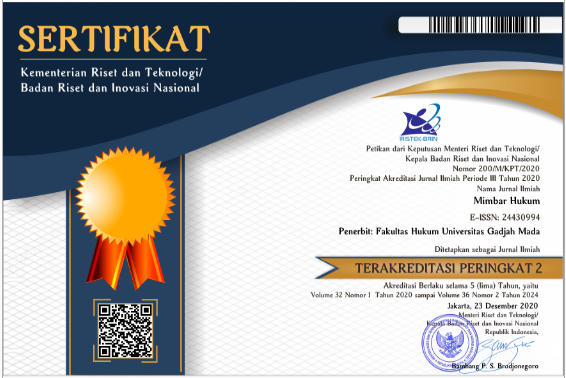Efektivitas Pemberlakuan Electoral Quota dalam Undang-Undang Nomor 12 Tahun 2003 tentang Pemilihan Umum dalam Meningkatkan Jumlah Perempuan di Dewan Perwakilan Rakyat Republik Indonesia Periode 2004-2009
Andy Omara(1*)
(1)
(*) Corresponding Author
Abstract
In Indonesia, women’s participation, particularly in parliament, has been intensively discussed in 2002. The extensive discussions continued in 2003 especially after the enactment of General Election Law. The enactment of this law is significant since it contained a provision regarding thirty percent quota for women, a provision which never appeared in the previous legislation. This provision is intended to increase the number of women in the legislature. This is based on the fact that in Indonesia the number of women is higher than that of men. The lack of women in parliament is perhaps one of the causes why issues about women rarely became a priority in government policy making. The significant number of women in parliament could be a way to articulate women’s interests in government policy making. This paper will specifically examine the implementation of ‘thirty percent quotas for women’ to increase the number of women in the Indonesian parliament. It argues that even though there is an effort to increase the number of women in parliament through electoral quotas, such an effort is not sufficient to increase the number of women in parliament. Electoral quotas may gain better result if it combines with the change of political culture and the change of government policy. In doing so, other actors such as political parties and the government should be involved. Political parties and the government should be more gender sensitive (women friendly) in policy making.
Full Text:
PDFArticle Metrics
Refbacks
- There are currently no refbacks.
Copyright (c) 2012 Andy Omara

This work is licensed under a Creative Commons Attribution 4.0 International License.



























